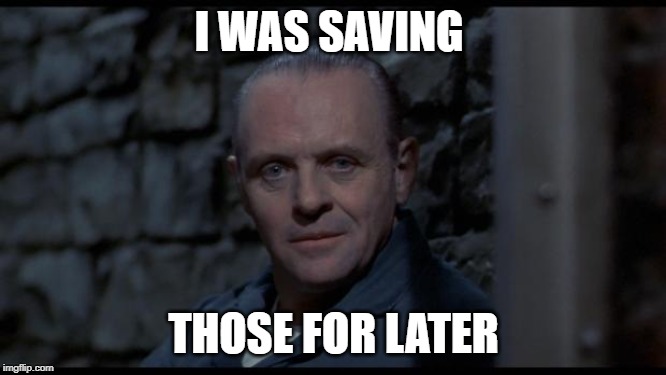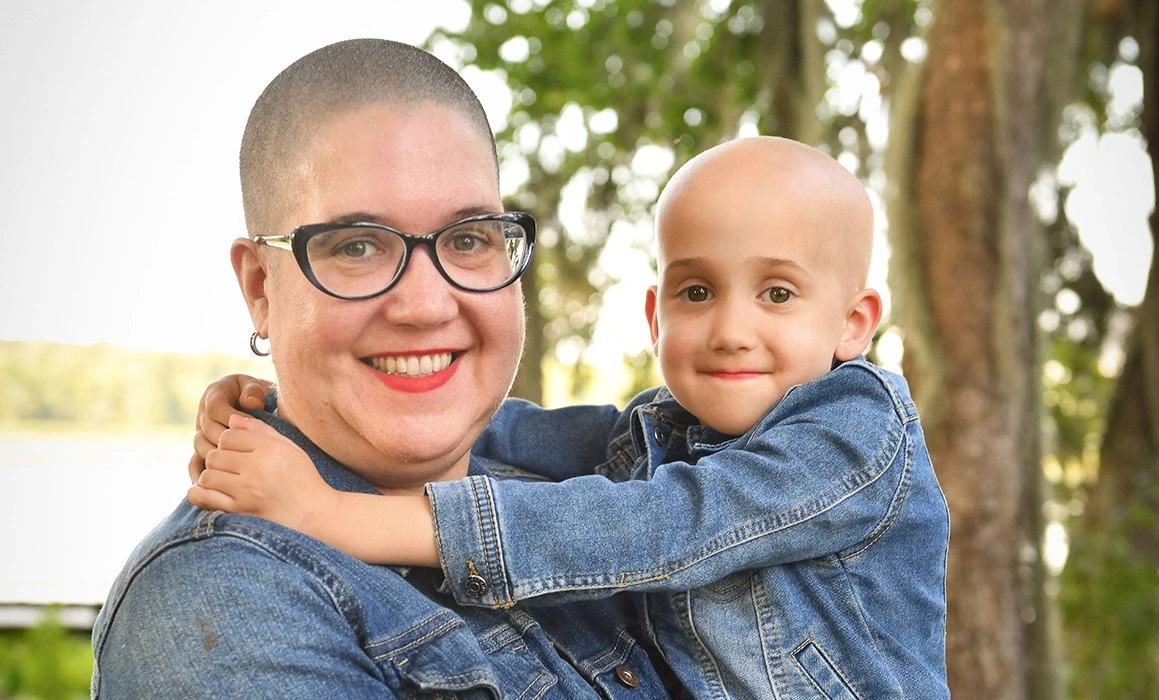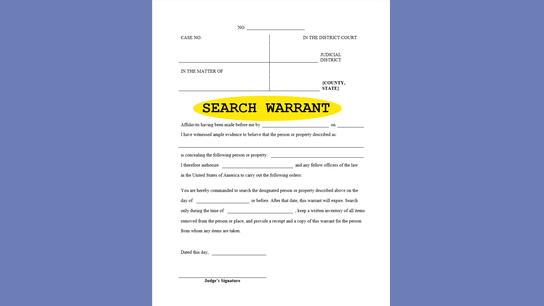“I think I’m going to put in for a search warrant. What do you think?” The detective asked.
“The search warrant is your call, but—” I looked around the apartment. There were streaks of blood on the carpeting that looked like drag marks. Blood was smeared on several of the walls as well. The decedent was lying face down on the kitchen floor. A bloody knife with a long blade was on the floor next to him.
Family members called the police asking for a well-being check because they hadn’t heard from the decedent in several days. When the police arrived, they found the main entrance into the apartment was barricaded from the inside and they had to force entry. A cursory search of the apartment revealed that all the doors and windows were locked from the inside, making it highly unlikely that someone killed this man and then left. Unless he was a member of the X-Men.
“—I know two things,” I continued. “First, there’s more blood in this apartment than I’ve ever seen since I’ve been working in this field. And two, when we roll him, we’re going to find at least one stab wound and I will not be able to tell you if it was self-inflicted.”
The detective opted to get a search warrant. And because this was a gorgeous Sunday morning, that also meant he had to chase a judge down at a golf course. When I first heard one of the officers make a crack about the judge, I thought they were kidding. They weren’t. They were standing there, making guesses as to which golf course the judge was going to be at.
And while the judge was being hunted down, the rest of us sat outside of the apartment and waited. Nothing further would be done at the scene until that search warrant was signed.
Search Warrants
Here’s a fun a tidbit for you. Police officers need search warrants. Death investigators do not. When death investigators search a private residence, the scope of their search is limited to the following:
- Documenting and collecting prescription medications
- Searching for next-of-kin contact information
- Medical/Dental records
But if we’re already at a scene, such as the above scenario, and the police feel a warrant is needed, we stop what we’re doing and wait for the warrant before continuing. Why? Because the scene falls under the jurisdiction of the police. The body falls under the jurisdiction of the medical examiner/coroner’s office. So even though death investigators technically don’t need a search warrant, no one in the field is going to step on law enforcement’s toes. The rule that death investigators do not need a search warrant really falls under investigations where there is no suspicion of homicide.
Prescription Medications
This one is a bit of a sticky wicket. In some states, death investigators are not allowed to remove prescription medications from scenes. In the two states I worked in, they were allowed to. Whether they can be removed or not, documentation is key. From those prescription medications, medical history can be acquired as well as the name of the primary care physician (PCP). Even if they can’t be collected, they still need to be photographed and the name of the medication as well as the prescribed dose should be written down. (If I worked a scene where the medication couldn’t be collected, I would take closeup photographs of every bottle because it’s faster than taking the time to write it down.) The following are a list of places in a private residence where prescription medications will most likely be found.
- Kitchen counters
- Kitchen cupboards
- Refrigerators
- Bathroom counters
- Medicine cabinets
- Bedside tables
- Handbags
- Backpacks
***I know of family members who keep medications in vehicle glove compartments but unless a family member or witness is present, and tells the death investigator that medications are kept inside glove compartments, I wouldn’t recommend anyone go searching through a vehicle. That could cause problems if the investigator stumbles on evidence of a serious crime. I’ll talk more about this in a bit.***
Next-of-Kin
Any of the following will help us locate and notify next-of-kin.
- Phone bills (In the digital age, it’s unlikely this would be found at a scene because most phone bills are now sent electronically. But investigators should still look.)
- Hospital records (Because, in addition to establishing a medical history, sometimes people will list emergency contact information that will lead to next-of-kin. FYI, I’ve seen a lot of records where this information was never filled out.)
- Medical appointment reminder cards (because these could lead to a primary care doctor which will not only establish a medical history but could also give us next-of-kin information.) These are generally found on refrigerator doors as well as inside wallets.
- A lease – Because there’s generally a field that the leasee is required to fill out that provides an emergency contact.
- The management office at an apartment complex will obviously have the lease but trying to get them to release that information can get a bit dicey.
- Personal address books – (I think for the most part, people use their cell phones but it doesn’t hurt to look.
- Cell phones
- If the cell phone is charged and not kept locked with a passcode, investigators can look through the contacts to find next-of-kin. Long-distance numbers were considered ideal because 9/10 times they led straight to a family member. (***It’s been over ten years since I worked in this field but if I had to guess, going through someone’s Facebook App to look for family members could get dicey. If I were the investigator with this situation, I’d get my supervisor to okay this before proceeding. And if I were the supervisor, I’d make the investigator exhaust all other means of tracking down family members before getting onto the decedent’s social media accounts.***)
- Online phone books such as Whitepages.com or Anywho.com can also be helpful because when entering the decedent’s known information, there is usually a field that will list family member names next to the decedent’s name. I’ve used online phone books to track down family members on more than one occasion and have actually been able to make notification using this method. But while I can get names of next of kin, I can’t get their contact information from these pages without paying a fee. So basically, if I had an address book with a bunch of names, I’d take that back to the office and do the Internet search to narrow down the names.
Rooms most likely to contain the above items
- Kitchens – countertops and the table
- Handbags
- Backpacks
- Living room end tables and coffee tables
- Refrigerator doors are great for appointment reminder cards
- Home offices – Always start with what’s in plain sight, like a desk or a table, before searching a filing cabinet.
- Bedside tables
In the scene I mentioned at the beginning of this post, we already knew who the family was. However, had the family members been unknown, and because the police escalated this to a suspicious death, the death investigators at my office would not have conducted any kind of search through the residence. Different medical examiner/coroner’s offices might have different procedures, but at the two offices I worked at, if the scene was a homicide or suspicious death, our interactions were very limited. If family needed to be found, the police would find and notify them.
Possible Plot Twist
It’s very important that death investigators be able to justify where they went looking for the above information. Here’s why. If evidence of a serious crime is found by the death investigator during a routine search for the above information, a clever defense lawyer may argue that the police used the death investigator to conduct an illegal search.
Here’s an example of what I mean when I say “using the death investigator to conduct an illegal search”:
The police interviewed the decedent earlier in the week. They believe he’s part of a group of individuals responsible for a recent bank robbery and is hiding the money somewhere in his home. They have been unable to secure a search warrant. Now the decedent is dead. He was terminally ill. His doctor is willing to sign the death certificate. There are no signs of trauma or foul play, but his next-of-kin information is unknown.
Police officer: Hey, Death Investigator, why don’t you search this trunk in the attic? Maybe it will have family contact information inside.
The death investigator opens the trunk and finds heroine, a large stash of money and multiple jars of pickled organs.

Unless a witness/friend comes forward and says family contact information will be found inside the trunk, there is no legitimate reason for the death investigator to search anywhere inside of the attic.
Police officers would NEVER do this. But, there’s no doubt in my mind that when I say law enforcement will not use a death investigator to conduct an illegal search, someone reading this will say:
“My best friend’s, sister’s, boyfriend’s, brother’s girlfriend heard from this guy who knows this other guy who’s going with this girl who once dated a police officer who admitted to using a death investigator to conduct an illegal search of a residence.”
In the world I live in, law enforcement members are extremely protective of their crime scenes and outside of their own crime scene investigators, they don’t want anyone screwing around at their scenes. Not even death investigators although for obvious reasons, they have to tolerate death investigators. But, if you’re a crime writer looking for an interesting plot twist or a major hurdle your main character has to overcome, a scenario like this – where the death investigators are used to conduct an illegal search – could make an interesting plot twist.
So what happened to victim?
While we were waiting for the search warrant to be signed, we discussed it with the police detectives and it was agreed that my supervisor and I could conduct a medical/history interview with the family members. (I’ll go over medical/history interviews in another blog post.) During the interview, we learned that the decedent had been acting extremely paranoid in the days prior to his death. He often complained he was hearing voices and was worried that aliens were going to come for him. If you add that to the fact that the main entrance into his apartment had been barricaded from the inside and that all of the doors and windows were locked, it appeared the decedent suffered a psychotic break.
It took an obscene amount of time to get the search warrant signed and by the time it was signed, my supervisor had already sent me back to the office to finish out my shift so I wasn’t there when the body was rolled, but I was right, there was a stab wound.
As always, if you have any questions, please leave them in the comments or send me an email at contactme@amariesilver.com
Thanks for shopping Snark, Sass, & Sarcasm! I’ll see you next time.
Share this:
- Click to share on Facebook (Opens in new window)
- Click to share on Twitter (Opens in new window)
- Click to share on Pinterest (Opens in new window)
- More
- Click to share on Reddit (Opens in new window)
- Click to share on Telegram (Opens in new window)
- Click to print (Opens in new window)
- Click to share on Pocket (Opens in new window)
- Click to share on LinkedIn (Opens in new window)
- Click to share on WhatsApp (Opens in new window)
- Click to share on Tumblr (Opens in new window)








